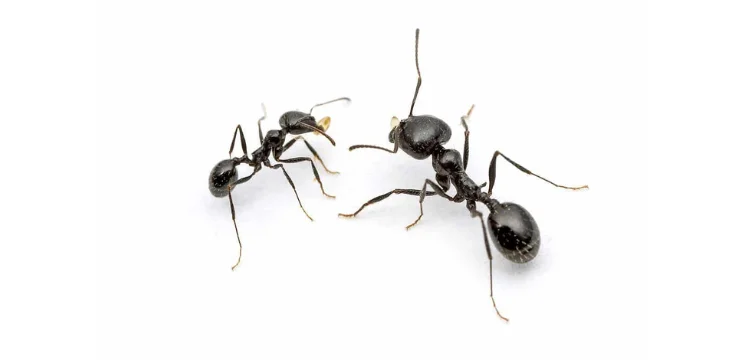The behavior of Florida carpenter ants (Camponotus floridanus) documented in recent research reveals intriguing insights into their sophisticated medical care for injured nestmates. Here are the key points highlighted in the study:
- Amputation to Save Lives: The ants were observed to perform amputations on injured comrades, particularly in cases of severe injuries to the upper part of the leg (femur). Amputation is seen as a strategy to improve the survival chances of the injured ant.
- Medical Care Process: When faced with an injured nestmate, the ants first clean the wound using their mouthparts, likely applying secretions from their glands. Depending on the location of the injury, they either clean the wound extensively or proceed to amputate the damaged limb.
- Decision Making: The decision between cleaning the wound and amputating the limb seems to depend on the flow of hemolymph (ant equivalent of blood). Injuries closer to the lower part of the leg (tibia) have a higher hemolymph flow, making amputation less effective due to quick contamination. In contrast, injuries higher up the leg allow sufficient time for effective amputation.
- Survival Rates: The study reported significantly higher survival rates for ants that underwent amputation after upper leg injuries (90-95%) compared to those with untreated injuries (about 40%). For lower leg injuries, cleaning the wound led to a survival rate of about 75% compared to 15% for untreated injuries.
- Evolutionary Perspective: The researchers suggest that this behavior of caring for injured nestmates has evolved due to its resource-saving benefits for the colony. Rehabilitating a worker ant with minor effort allows them to resume productive activities, benefiting the colony’s overall productivity.
- Gender and Role: All worker ants involved in these behaviors are female. Males in ant colonies have a minor role and typically mate with the queen before dying.
- Empathy and Evolution: While the behavior may resemble empathy in some aspects, the researchers emphasize that it’s driven by evolutionary advantages rather than emotional compassion as understood in humans.
Overall, the study sheds light on the remarkable adaptive behaviors of ants in caring for injured members, showcasing a level of sophisticated medical care within the animal kingdom that parallels certain human practices.











